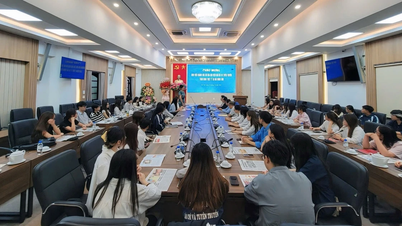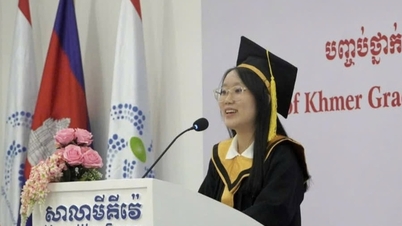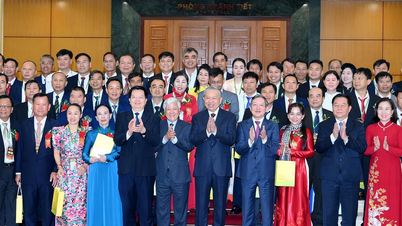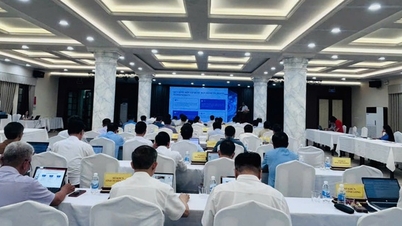
Vietnamese parents and students listen to advice from New Zealand school representatives
PHOTO: NGOC LONG
On the morning of July 14 (Vietnam time), the New Zealand Government announced the International Education Growth Plan (IEGP), outlining actions to double the value of the international education industry, from 3.6 billion NZD in 2024 to 7.2 billion NZD in 2034. Within the framework of this plan, the New Zealand Immigration Department (INZ) also changed a number of regulations related to the work rights of international students, which will take effect from November 3, according to an official announcement.
Specifically, university and high school students who meet the requirements will be allowed to work up to 25 hours/week during the semester, an increase of 5 hours compared to the current rate, applicable to all new student visas issued from November 3 onwards and including applications submitted before this time. However, if the student visa is issued before this time, international students need to apply to change visa conditions or apply for a new visa and pay the prescribed fee to increase working hours.
As for high school students in grades 12 and 13 (general education in New Zealand lasts 13 years - PV), they need the consent of their parents and school if they want to work part-time. This requirement will still be maintained when the time limit increases to 25 hours/week.
There are currently 40,987 student visa holders with the right to work part-time during their studies. Of these, 29,790 visas will expire on or before 31 March 2026, while 11,197 will expire after that date. Therefore, INZ advises international students to wait until they apply for a student visa extension to increase their working hours without having to pay extra fees, or wait until after the summer holidays to apply for a change, as many student visas allow full-time work during the summer holidays.
Another change is that New Zealand will extend the right to work part-time during study to all international undergraduate students participating in approved exchange or study abroad programs, including short-term courses lasting one semester. These are non-degree courses that allow international students to study, research, intern... in New Zealand for a few weeks to a year while still receiving credit towards their training program in their home country.
In addition, INZ also clarified the regulation that if changing training institutions or reducing study levels, international students are required to apply for a new student visa, instead of just applying to change visa conditions as before.
In addition, INZ is also considering a new short-term work visa for vocational students and simplifying the visa application process. Previously, INZ said all international student visa applications would be processed on a new platform called ADEPT, making the application process as simple and seamless as possible and allowing applicants to update the status of their applications in real time, according to the statement.
Before New Zealand, another English-speaking country, Canada, in late 2024, also increased the number of hours international students are allowed to work off-campus during school hours, up to a maximum of 24 hours/week instead of just 20 hours as before. Meanwhile, Hong Kong, the destination at the same time, also allowed international students to freely work part-time instead of being limited to 20 hours/week only on campus as before.
According to ENZ statistics, 69,133 international students will enroll in New Zealand education providers in 2023, an increase of 67% compared to 2022, and will be concentrated mainly in universities. Of these, 1,736 will be from Vietnam, an increase of 10% compared to the previous year but still about half the record (3,042 in 2019), with the largest concentration also in universities (1,120), followed by secondary schools (308).
Source: https://thanhnien.vn/mot-nuoc-noi-tieng-anh-mo-rong-quyen-lam-viec-cho-du-hoc-sinh-tu-thang-11-185250714105359588.htm




![[Photo] Ready for the 2025 Fall Fair](https://vphoto.vietnam.vn/thumb/1200x675/vietnam/resource/IMAGE/2025/10/14/1760456672454_ndo_br_chi-9796-jpg.webp)







































































































Comment (0)